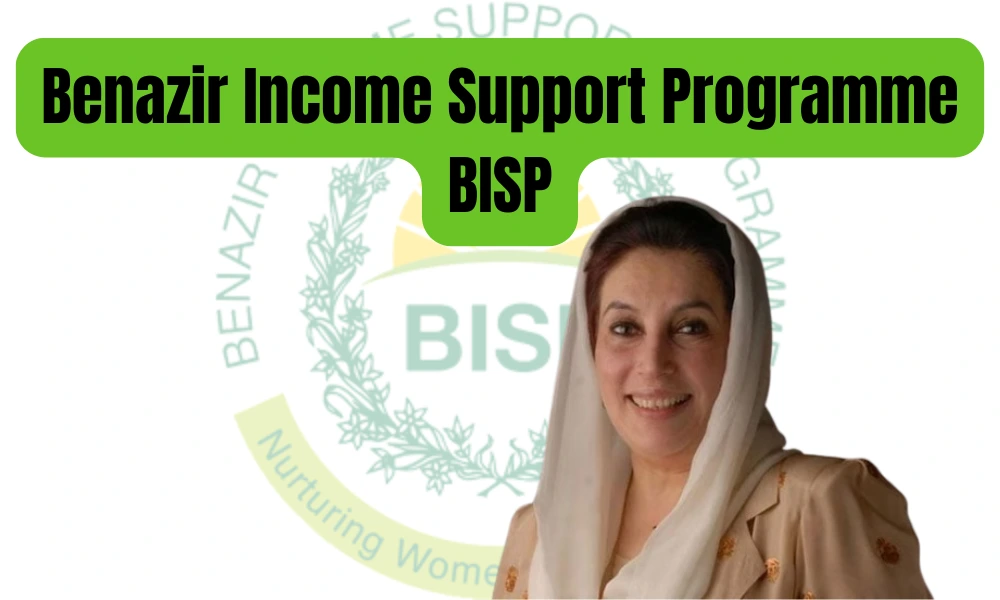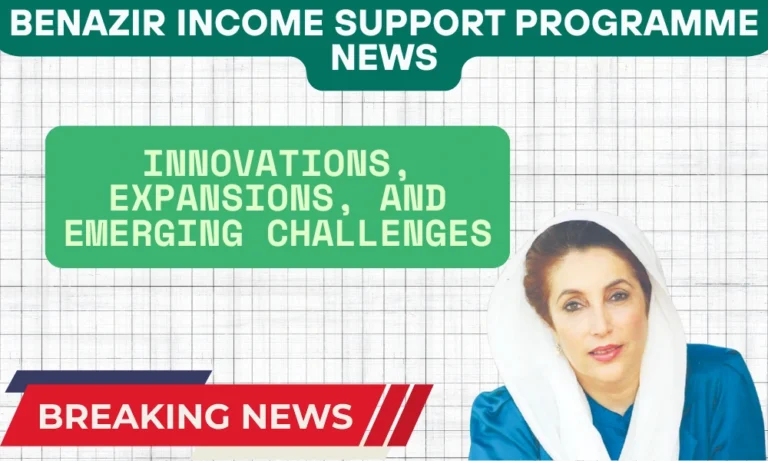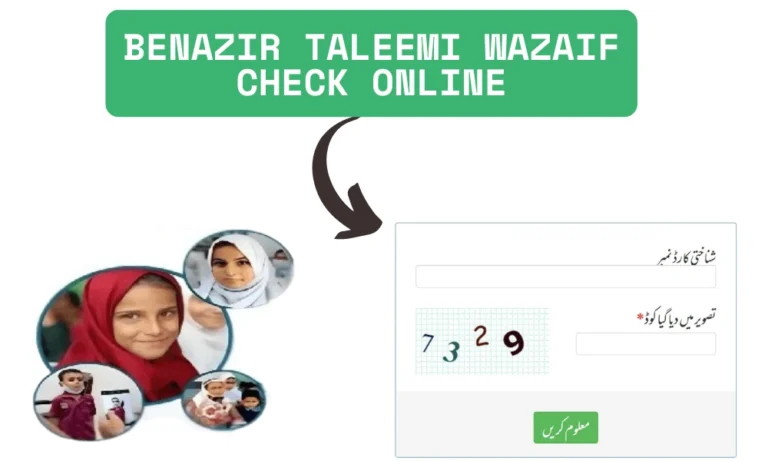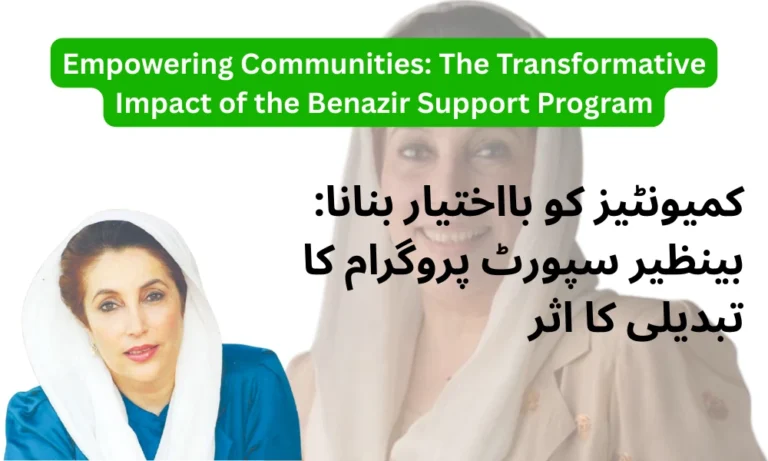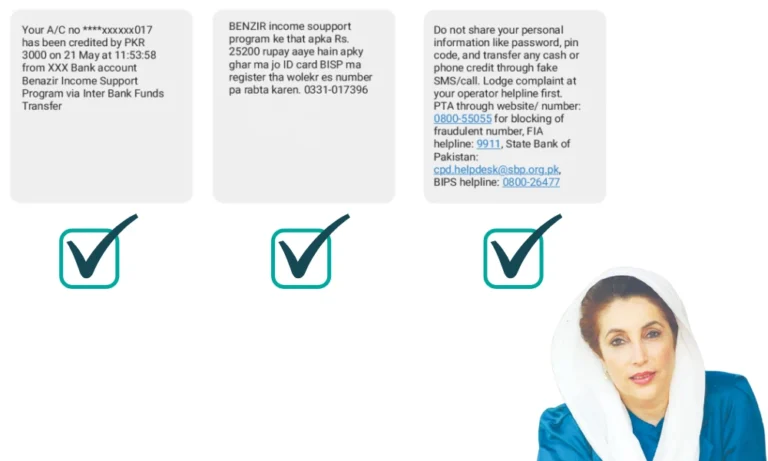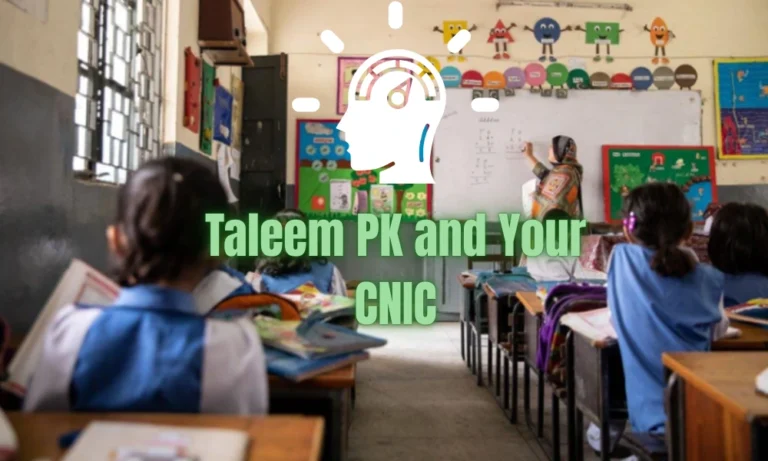In a nation where nearly 24% of the population lives below the poverty line, Pakistan’s Benazir Income Support Programme (BISP) has emerged as a lifeline for millions of marginalized families.
Established in 2008, this flagship social safety net honors the legacy of former Prime Minister Benazir Bhutto, whose vision centered on empowering women and uplifting the economically disenfranchised.
Over the past decade, the Benazir Income Support Programme BISP has evolved into one of South Asia’s largest conditional cash transfer initiatives, combining immediate financial relief with long-term strategies to break the cycle of poverty.
This article explores the structure, achievements, challenges, and future potential of the Benazir Income Support Programme BISP, underscoring its transformative role in Pakistani society.
Understanding the Benazir Income Support Programme BISP
The Benazir Income Support Programme BISP was launched as a response to soaring inflation, unemployment, and food insecurity exacerbated by global economic crises. Designed to protect the poorest households—particularly those headed by women—the program provides quarterly cash transfers, conditional on children’s school attendance and health check-ups. Key objectives include:
Poverty Alleviation: Direct financial aid to over 8 million families.
Women’s Empowerment: 94% of beneficiaries are women, fostering economic independence.
Human Capital Development: Incentivizing education and healthcare access.
Social Inclusion: Targeting marginalized groups like widows, disabled individuals, and rural communities.
The Benazir Income Support Programme BISP operates through a hybrid model of unconditional and conditional transfers, ensuring immediate relief while promoting sustainable development.
Key Features of the Benazir Income Support Programme BISP
The success of the Benazir Income Support Programme BISP lies in its innovative design and adaptive implementation:
1. Biometric Verification System
To minimize fraud, beneficiaries receive payments via biometric ATMs or mobile wallets linked to their CNIC (Computerized National Identity Card). This technology ensures only registered individuals can access funds.
2. National Socioeconomic Registry (NSER)
The Benazir Income Support Programme BISP uses the NSER—a database of 27 million households—to identify eligible families through poverty scorecards. Regular updates ensure resources reach the most vulnerable.
3. Conditional Cash Transfers (CCTs)
Under initiatives like Benazir Taleemi Wazaif (education stipends) and Benazir Nashonuma (nutrition support), families receive extra funds if children attend school or pregnant women access prenatal care.
4. Disaster Response Mechanism
The Benazir Income Support Programme BISP swiftly scales up during crises. For example, during the 2022 floods, it disbursed PKR 70 billion to 2.7 million affected families.
5. Grievance Redressal System
A dedicated helpline (*0800-26477*), SMS service (*8171*), and regional offices allow beneficiaries to report issues like payment delays or eligibility errors.
Impact of the Benazir Income Support Programme BISP
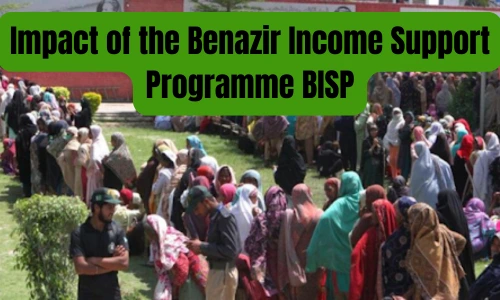
Independent evaluations and World Bank reports highlight the Benazir Income Support Programme BISP’s measurable impact:
1. Poverty Reduction
A 2023 study found that BISP reduced poverty rates by 7% in recipient households.
Families reported a 15–20% increase in monthly consumption, improving nutrition and living standards.
2. Educational Advancements
Primary school enrollment rose by 11% in BISP beneficiary communities, with girls’ enrollment increasing by 14%.
The Taleemi Wazaif initiative has supported over 10 million children since 2012.
3. Health Improvements
Prenatal care visits surged by 25% in districts covered by Benazir Nashonuma.
Child stunting rates dropped by 5% in program areas.
4. Women’s Empowerment
82% of female beneficiaries now participate in household financial decisions, compared to 35% pre-BISP.
Over 500,000 women have opened bank accounts through the program.
Challenges Facing the Benazir Income Support Programme BISP
Despite its achievements, the Benazir Income Support Programme BISP faces systemic and operational hurdles:
Funding Uncertainty: Reliance on international donors (e.g., the World Bank) and budget cuts threaten scalability.
Inflation Eroding Payments: The quarterly stipend of PKR 9,000 (~$32) loses value amid Pakistan’s 40% food inflation (2023).
Bureaucratic Delays: Late payments due to verification bottlenecks or banking errors.
Cultural Resistance: In conservative regions, male family members sometimes confiscate women’s stipends.
Data Gaps: Outdated NSER entries exclude newly impoverished households.
How to Access Benazir Income Support Programme BISP Funds
For eligible families, accessing the Benazir Income Support Programme BISP involves three steps:
1. Registration
Visit the nearest BISP tehsil office with CNICs, proof of income, and utility bills.
Undergo a means test to determine eligibility via the NSER poverty scorecard.
2. Verification
Complete biometric registration at designated centers.
Link your CNIC to a mobile number for SMS alerts.
3. Receiving Payments
Collect funds quarterly via biometric ATMs (HBL, UBL), mobile wallets (JazzCash, Easypaisa), or Pakistan Post.
Check payment status via the BISP portal (https://bisp.gov.pk) or SMS *8171*.
The Future of the Benazir Income Support Programme BISP
To sustain its impact, the Benazir Income Support Programme BISP is embracing reforms:
1. Digital Expansion
Introducing blockchain-based payment tracking to reduce leakage.
Launching a user-friendly app for real-time stipend monitoring.
2. Stipend Increases
Advocates urge raising payments to PKR 15,000 quarterly to counter inflation.
3. Vocational Training
Piloting programs like BISP Kafalat to train women in tailoring, agriculture, and tech skills.
4. Climate Resilience
Integrating disaster-risk financing to preemptively support families in climate-vulnerable regions.
5. Partnerships
Collaborating with NGOs like the Pakistan Poverty Alleviation Fund to expand coverage.
Conclusion: A Beacon of Hope
The Benazir Income Support Programme BISP stands as a testament to Pakistan’s commitment to social justice. By prioritizing women, education, and health, it addresses both the symptoms and root causes of poverty. While challenges like inflation and funding gaps persist, strategic investments in technology and policy innovation can amplify its reach.
As the Benazir Income Support Programme BISP enters its second decade, its role in fostering resilience and equality remains indispensable. For millions, it is not just a program—it is a promise of dignity, opportunity, and hope.

